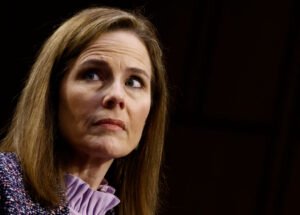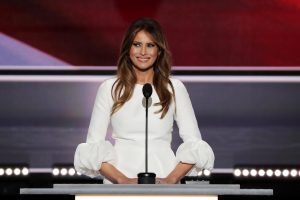(Photo by Alex Wong/Getty)
Were you wondering where Bill Barr has been this past week? Presumably hiding his face in shame over the ignominious state of the Justice Department, which just sued Melania Trump’s former buddy Stephanie Winston Wolkoff for writing a book about her, because that is somehow UNLEGAL.
Oh, that’s not a word? Well breach of fiduciary duty by a White House volunteer isn’t a cause of action either, but that didn’t stop the DOJ!
The complaint, filed yesterday in the U.S. District Court for D.C., begins by answering the burning question “What is First Lady?”
The spouse of the individual holding the Office of the President of the United States has historically filled the role of First Lady of the United States.
News you can use!
And because the First Lady receives Secret Service protection and helps out her husband, she has an implied right to muzzle everyone around her.
And it is particularly important that she be able to do so without fear that those providing assistance to her and to other members of the First Family—and, indirectly through them, to the President— will divulge information provided in confidence that, if divulged, could undermine those critical presidential functions. The traditional role of the First Lady in connection with the President and the Government would be impaired if a confidential advisor could wholly ignore her nondisclosure obligations, voluntarily undertaken.
Which is an interesting assertion of values, but is not, in fact, the law. Government employees with security clearances can be enjoined from publishing classified information, but regular folks have a First Amendment right to speak about their time in government.
The Trump administration seems to have tried to get around this by forcing White House employees to sign non-disclosure agreements, which are probably not worth the paper they’re written on, as NatSec lawyer Bradley Moss laid out in Lawfare back in 2018 when the White House was rattling its saber at Omarosa Manigault Newman.
But Manigault Newman was an actual government employee, as opposed to Winston Wolkoff, who was an uncompensated “trusted advisor” forced to sign a Gratuitous Services Agreement foregoing any right to speak or write about her time in the White House. It even purported to bar her from acknowledging the existence of said contract with the U.S. government.
As consideration the government offered the priceless privilege of basking in the royal presence. Which makes perfect sense if you’re a corporation licensing your name to a hotel chain, but less if you’re the U.S. government.
The GSA was supported by adequate consideration, including because (but not limited to the fact that) Ms. Wolkoff was “allowed access to The White House complex and equipment in connection with this Agreement.” Id. § X. Few individuals are permitted such access and for someone in Ms. Wolkoff’s position (a former director of special events at Vogue and producer of Met Galas), the ability to see firsthand the protocols and operations of the White House was a tremendous personal and professional opportunity of great value.
Having established that they’re now selling access to the White House, the DOJ turns to enforcing those dubious confidentiality provisions. By its own terms the contract ended on September 30, 2018, and was terminable at will by either party. The non-disclosure clauses contained no specific sunset, from which the White House infers that they bind Winston Wolkoff in perpetuity.
“The confidentiality obligations on Ms. Wolkoff survive the discontinuation or severance of the GSA,” they state as established fact.
But wait, there’s more!
What if the First Lady is actually covered by executive privilege?
Ms. Wolkoff also reveals deliberations about White House hiring decisions and her role in those decisions. See Melania & Me at 177-80. The President needs to be able to trust his advisors and have confidential information about them kept confidential. The President, the First Lady, and other advisors need to be able to freely deliberate about important decisions bearing on how the Executive Branch is constituted and operated.
That’s the DOJ trying to back into a deliberative process privilege claim without having to go through the embarrassment of saying it out loud. Because it would be extremely embarrassing.
But if the court doesn’t bite on that one, perhaps it will buy that Winston Wolkoff has a fiduciary obligation to the United States of America. You know, in her position as secret, unpaid, trusted advisor to the First Lady, who takes her responsibilities very seriously.
TRUMP: They say I’m complicit. I’m the same, like him, I support him, I don’t say enough, I don’t do enough, where I am. I’m working like a — my ass off Christmas stuff, that, you know, who gives a fuck about Christmas stuff and decoration? But I need to do it, right? Correct?
WOLKOFF: One hundred percent. You have no choice.
TRUMP: Okay, and then I do it. And I say that I’m working on Christmas planning for the Christmas. And they said, “Oh, what about the children that were separated?” Give me a fucking break. Where they were saying anything when Obama did that?
AHEM.
So, the government is suing Winston Wolkoff for breach of contract, unjust enrichment, and breach of fiduciary duty. It seeks to impound all her profits from the book in a constructive trust and even force her to pay the government’s legal fees. Because, sure, why not.
Your tax dollars at work! And also, for the lawyers, your profession thrown into further disrepute.
Complaint [United States v. Wolkoff (1:20-cv-02935)]
Elizabeth Dye lives in Baltimore where she writes about law and politics.
 Jordan Rothman is a partner of The Rothman Law Firm, a full-service New York and New Jersey law firm. He is also the founder of Student Debt Diaries, a website discussing how he paid off his student loans. You can reach Jordan through email at jordan@rothmanlawyer.com.
Jordan Rothman is a partner of The Rothman Law Firm, a full-service New York and New Jersey law firm. He is also the founder of Student Debt Diaries, a website discussing how he paid off his student loans. You can reach Jordan through email at jordan@rothmanlawyer.com.

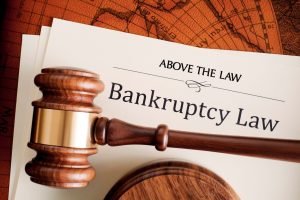

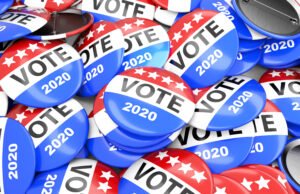

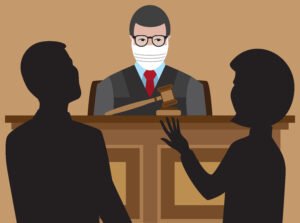
 Jordan Rothman is a partner of
Jordan Rothman is a partner of 


 Ellen Trachman is the Managing Attorney of
Ellen Trachman is the Managing Attorney of 